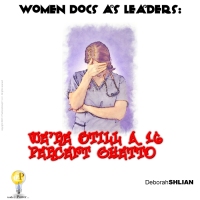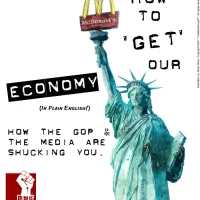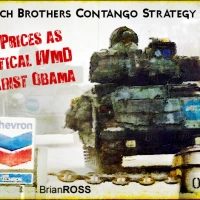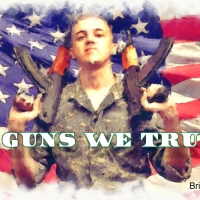Talking NATO, Trump Finds Black Lives Don’t Matter

Brian Ross
(Appeared originally at The Huffington Post)
The “bombshell” headline of the New York Times’ David E. Sanger and Maggie Haberman interview with Donald Trump was supposed to be his willingness to pull out of NATO, but, in the full transcript, we learned, not surprisingly that, to Trump, black lives don’t matter.
In a discussion of the attempted coup in Turkey, Trump praised their “strong man” president Recep Tayyip Erdoğan for ending the coup and restoring his rule quickly.
Erdogan has declared a three month state of emergency, where, in addition to hunting for the coup leaders, he is engaging in a purge of the intelligentsia of the nation, the dangerous signs of the rise of fascism.
Academics have been banned from leaving the country, more than fifteen thousand teachers were fired by his Education Ministry, and the country’s board that regulates higher education forced the resignation of almost sixteen-hundred university deans.
Sanger brings this to Trump’s attention:
“SANGER: Erdogan put nearly 50,000 people in jail or suspend them, suspended thousands of teachers, he imprisoned many in the military and the police, he dismissed a lot of the judiciary. Does this worry you? And would you rather deal with a strongman who’s also been a strong ally, or with somebody that’s got a greater appreciation of civil liberties than Mr. Erdogan has? Would you press him to make sure the rule of law applies?”
Presidents, and those who seek the office, need to be careful in what they say. Obama, for example, chooses his words carefully, sometimes belaboring and slowly, to make sure that the voice of America’s leader is on point. Trump, rather than discuss Turkey’s issues at that level, plunged into a disturbing attack of the African-American community nationally.
“TRUMP: I think right now when it comes to civil liberties, our country has a lot of problems, and I think it’s very hard for us to get involved in other countries when we don’t know what we are doing and we can’t see straight in our own country. We have tremendous problems when you have policemen being shot in the streets, when you have riots, when you have Ferguson. When you have Baltimore. When you have all of the things that are happening in this country ― we have other problems, and I think we have to focus on those problems. When the world looks at how bad the United States is, and then we go and talk about civil liberties, I don’t think we’re a very good messenger…
“I don’t know that we have a right to lecture. Just look about what’s happening with our country. How are we going to lecture when people are shooting our policemen in cold blood. How are we going to lecture when you see the riots and the horror going on in our own country. We have so many difficulties in our country right now that I don’t think we should be, and there may be a time when we can get much more aggressive on that subject, and it will be a wonderful thing to be more aggressive. We’re not in a position to be more aggressive. We have to fix our own mess.”
The references to Ferguson, to Baltimore, and his use of the term “civil liberties” in relationship to the discussion of a coup is rife with disturbing issues in the thinking of the Republican nominee for president.
While no one celebrates the shooting of police officers for any reason, in a nation with more guns than people, it is not surprising that there are people disgruntled about all kinds of things, from grazing cattle on Federal land without paying for it, to former soldiers who snap and take their outrage at the longstanding problem with police shooting people of color, often with little or no provocation, out on local police or federal officers.
Trump isn’t talking about them, specifically, though. The mention of Ferguson and Baltimore. People protesting the needless killing of African-American citizens that resulted from minor power struggles with police.
Racism in dealing with suspects is an ongoing problem. Charles Kinsey, a black therapist who was working with an Autistic patient who was having issues, was shot yesterday by police in Florida, in spite of being unarmed, laying down on his back, with both hands raised in the air.
So the question which Trump inadvertently brings up is: Whose civil liberties matter? It isn’t going to shock anyone that the man who stoked the birther movement, and repeatedly charged that President Obama was not a U.S. citizen, is not sympathetic to the denial of rights of African-American citizens.
The connection to the harsh retaliation by Erdogan to the coup in Turkey, though, paints a much darker picture of the Republican candidate for president. WWDD – What would Donald Do with our First Amendment rights? With the right to organize and protest, and demonstrate?
Apparently, even though white people are also mass shooters and killers of federal officers, police (Think standoffs in Waco and in Nevada), and people of color have been routinely shot with little or no provocation to law enforcement officers, their rights are not held in the same sacrosanct esteem by Mr. Trump and the dwindling Republican base as the rising majority of Americans of color.
On the one hand, he prefaced these remarks with admiration for the Turkish pro-government protestors:
“Then all of a sudden, and the amazing thing is the one that won that was the people. They came out on the streets, and the army types didn’t want to drive over them like they did in Tiananmen Square when they sort of drived them over, and that was the end of that. Right? People said, I’m not going to drive over people. The people came out of their homes, and they were not in favor of what the military was doing. So that was quite impressive from the standpoint of existing government.”
He had no thoughts on Erdogan’s rounding up of teachers, the shut-down of intellectuals who have been critical of his autocratic and often extreme rule.
The distinguishing factors of what Trump considers exercise of free speech would seem to be whether it supports the government, and, implicitly, the white power structure that has ruled America since its founding.
That was reinforced, darkly, the following day in Trump’s nomination acceptance speech at the GOP convention:
“Our Convention occurs at a moment of crisis for our nation. The attacks on our police, and the terrorism in our cities, threaten our very way of life. Any politician who does not grasp this danger is not fit to lead our country.
Americans watching this address tonight have seen the recent images of violence in our streets and the chaos in our communities. Many have witnessed this violence personally, some have even been its victims.
I have a message for all of you: the crime and violence that today afflicts our nation will soon come to an end. Beginning on January 20th 2017, safety will be restored.”
One of the reasons that we have a Constitutional right to protest, is that our government was born of people who had been oppressed by British rule that proposed order of the kind that Mr. Trump seeks to impose.
Our populace is filled with the oppressed peoples of other lands, and, tragically, some who were sold into oppression here, and, more than two centuries later, have yet to be treated with the same dignity, respect, and equality by myriad agencies of all American governments.
Trump is the bombastic last toxic gasps of that fading white privilege, white power elite which manipulates the fears of middle and lower income white males to do its bidding.
What is clear is that, for Mr. Trump, black lives do not matter. Nor apparently, do their civil rights. Which begs the question:
Who will a President Trump feel doesn’t have equal rights under American law, after he is done with African Americans?










